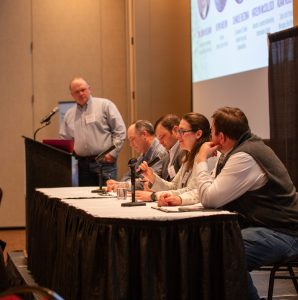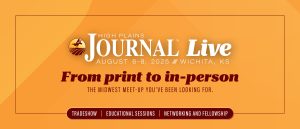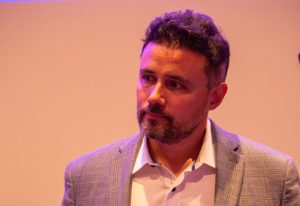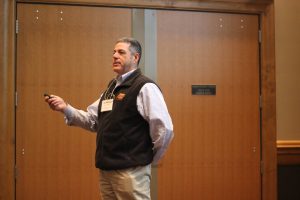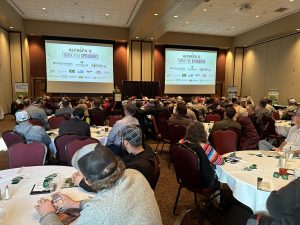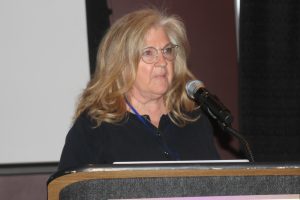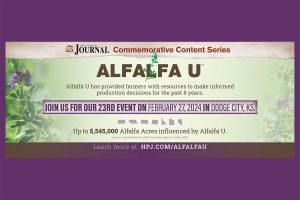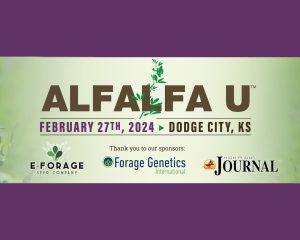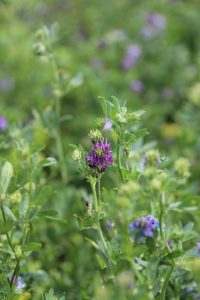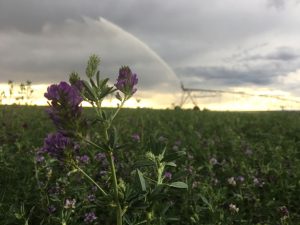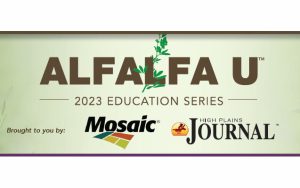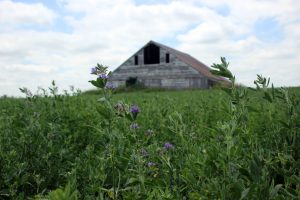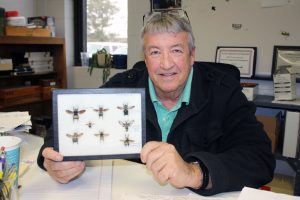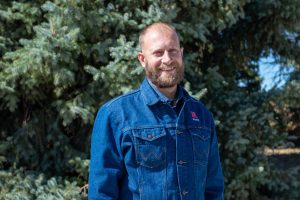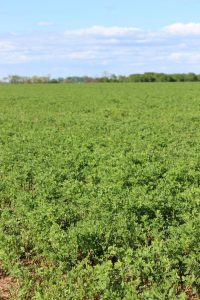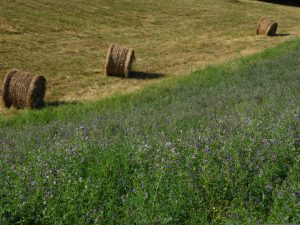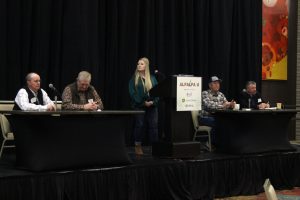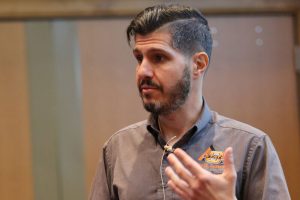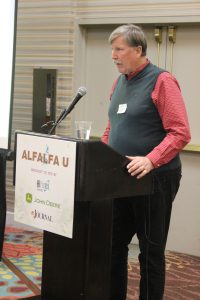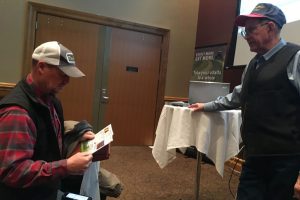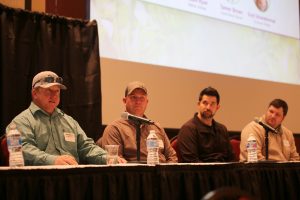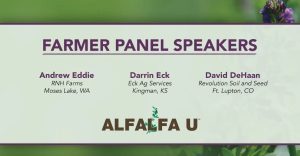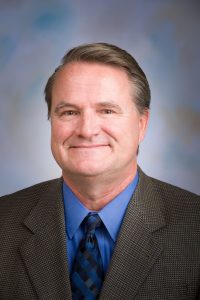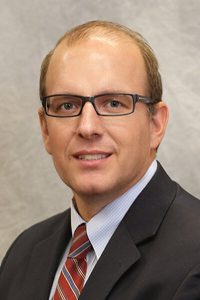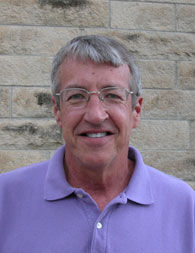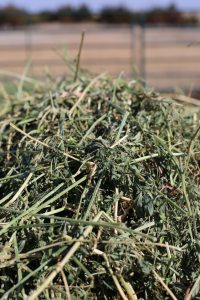

Feb. 27, 2024 │ Alfalfa U
Event location: Boot Hill Casino & Resort Conference Center, 4100 W Comanche, Dodge City, KS 67801
Sponsorship opportunities: Contact Jason Koenig, [email protected] or 314-873-3125
Hotel Reservations: Contact the Hampton Inn & Suites, Dodge City at 620-225-0000
Sponsor Rules and Regulations: View Here
Schedule
8:00 AM – Registration
8:30 – Welcome Remarks and Industry Panel
9:40 – Break
10:00 – Breakout 1
- Kelly Seuhs, Alfalfa Pest Management: A Look at New Challenges and Strategies for Alfalfa Insect Control
- Jessica Williamson, Optimizing Forage Quality During Harvest
11:00 – Breakout 2
- Dan Putnam, Technology and Its Importance to Alfalfa’s Future in a Changing Climate
- Romulo Lollato, Management Practices for High-Yielding Alfalfa
12:00 PM – Lunch
- Kim Nettleton, Kansas Hay Market 2023 Year in Review
1:15 – Break
1:35 – Breakout 3
- Dan Putnam, When You Just Don’t Have Enough: Coping with Highly Variable Water Supplies with Alfalfa
- Dwight Scholl, Basic Alfalfa 101+
2:35 – Closing Keynote – Jeff Hutton, Plains Weather Review and Seasonal Outlook
ALFALFA U SPEAKERS
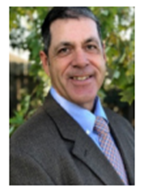
Kelly Suehs, Associate Extension Specialist, Department of Entomology and Plant Pathology, Oklahoma State University
Bio: Kelly Seuhs is an Oklahoma State University Extension specialist in the Department of Entomology and Plant Pathology. He specializes in alfalfa and pecan, providing industry partners and stakeholders with timely research-based information and programs on current issues and management strategies for arthropods. His current research focuses on alfalfa weevil insecticide resistance and biological strategies for pecan weevil control. As a member of the departmental field and row crops team, Seuhs has collaborated in numerous research trials related to insect management in row crops including sorghum, soybean, and corn.
Session Title: Alfalfa Pest Management: A Look at New Challenges and Strategies for Alfalfa Insect Control
Session Description: This session will discuss major insect pests associated with alfalfa production in the central and southern Great Plains taking a closer look at alfalfa weevil insecticide resistance, its challenges, and strategies for control.
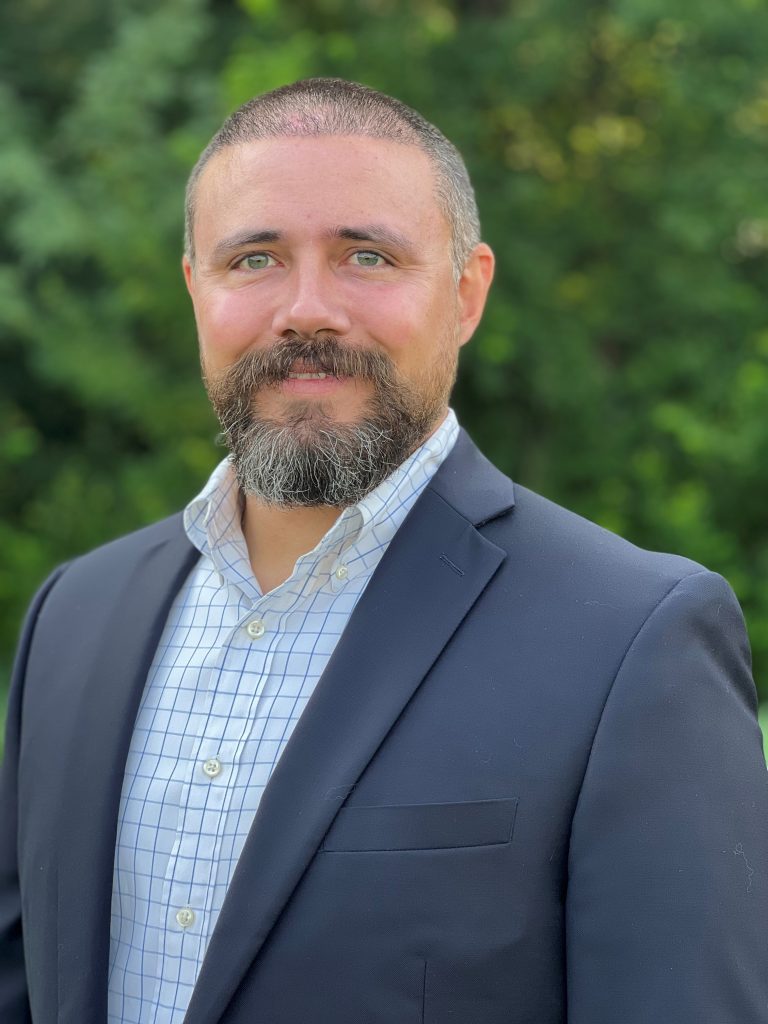
Dr. Romulo P. Lollato, Associate Professor, Wheat and Forage Extension Specialist, Kansas State University
Bio: Romulo Lollato is an associate professor of agronomy, Extension wheat and forage specialist, at Kansas State University. Lollato grew up on his family’s farm in southern Brazil, where his passion for agriculture started. In his current role, he provides leadership for an interdisciplinary team of students working on a number of research projects related to minimizing wheat and alfalfa yield gaps through improved management practices, as well as crop interaction with the environment, i.e., crop ecology.
Session Title: Management Practices for High-Yielding Alfalfa
Session Description: Lollato will present the results from recent studies performed by his group investigating alfalfa management in Kansas. Studies include an on-farm survey of management practices adopted in commercial Kansas alfalfa fields and their relation to alfalfa yield, fertility management, and water use efficiency.
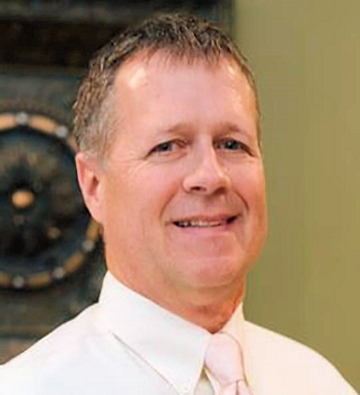
Jeff Hutton, Meteorologist and Owner, Hutton Weather Futures, LLC
Bio: Jeff Hutton is an independent consulting meteorologist based out of Kingman, Kansas. A native of Dodge City, Hutton knew exactly what he wanted to do in life at an early age. He developed a passion for weather after a tornado struck Garden City in 1967. He earned a bachelor’s degree in meteorology from the University of Oklahoma and began his professional career in weather in 1983. Hutton joined the National Weather Service in 1989. He retired from that agency in Dodge City in December 2022 and formed Hutton Weather Futures, providing detailed long-range weather outlooks for crop and livestock producers. As a professional meteorologist, Hutton has a vast amount of knowledge on global weather patterns and utilizes innovative strategies and technology applications to support long range forecasts and monthly and seasonal outlooks.
Session Title: Plains Weather Review and Seasonal Outlook
Session Description: Beginning with a review of 2023’s weather, a discussion of the plains climate, weather and climate variability, and challenges of dynamic weather prediction will follow. The session will end with an outlook for 2024.
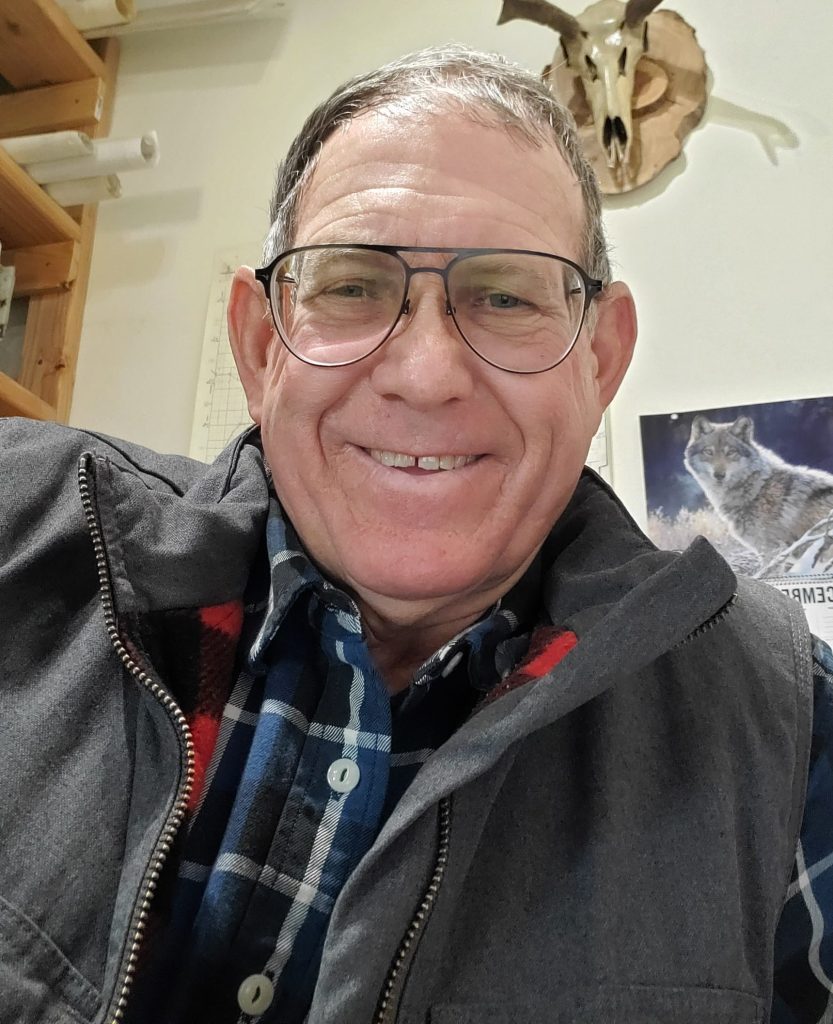
Dwight Scholl, Lakin Manager, Tri Rotor Crop Services, LLC
Bio: Dwight Scholl was raised on a small crop and livestock farm in north central Kansas. He started as a floater operator in the fertilizer business in 1973. He was worked predominantly in southwest Kansas and has been with Tri Rotor Crop Services, LLC for 25 years.
Session Title: Basic Alfalfa 101 +
Session Description: “An ounce of prevention is worth a pound of cure.” With that in mind, Scholl will encourage producers to analyze the previous year to anticipate potential issues in the future. Scholl wants his customers to prevent or minimize as many of those problems as possible before they appear.
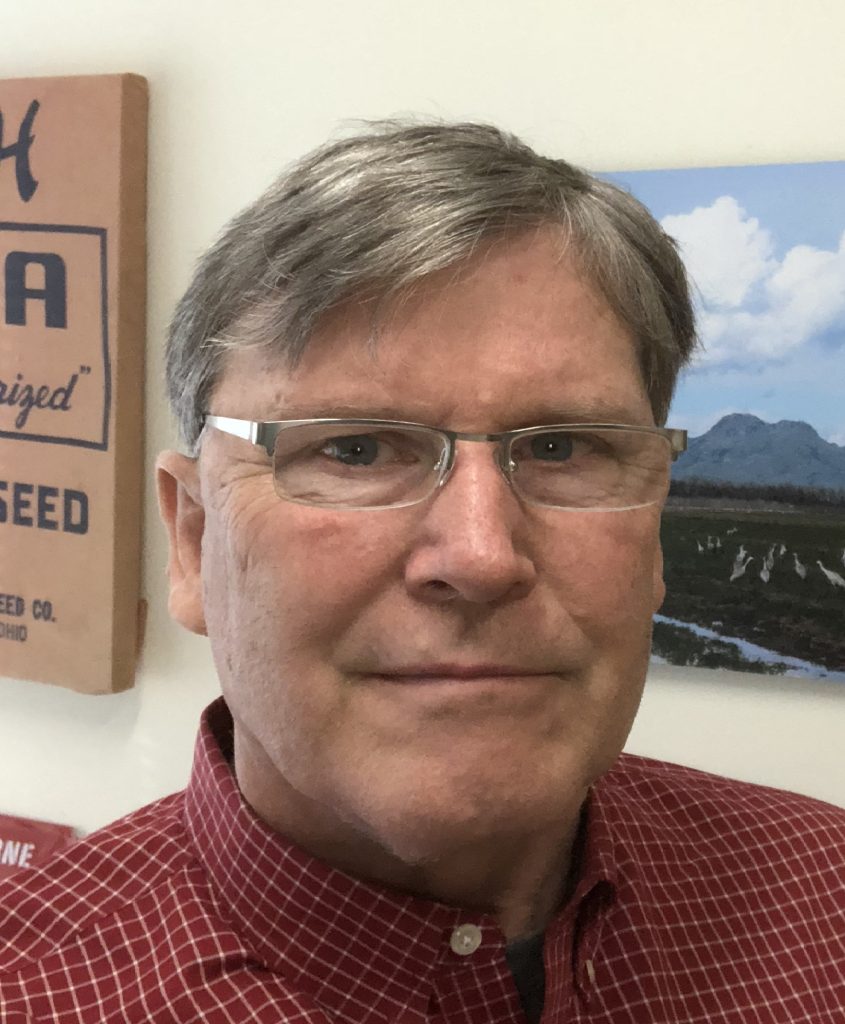
Dan Putnam, Professor Emeritus, University of California, Davis
Bio: Dr. Daniel H. Putnam is professor emeritus in the Department of Plant Sciences at the University of California Davis where he has conducted research and extension activities on alfalfa, forage and other agronomic crops in California for the past 31 years. He is from southern Ohio and received his bachelor’s degree from Wilmington College and master’s and doctoral degrees from the University of Massachusetts, Amherst. Putnam works closely with farmers and industry members to address agronomic practices, conduct research on varieties, irrigation, laboratory measurements of quality, development of unique traits, harvesting schedules, and the economics of alfalfa and various forages. He is a board member of the National Alfalfa & Forage Alliance, a founding member of the California Alfalfa & Forage Association, chair of the Western & California Alfalfa Symposium, and former chair of the World Alfalfa Congress (2022). Putnam has consulted worldwide.
Session Title: When You Just Don’t Have Enough: Coping with Highly Variable Water Supplies with Alfalfa
Session Description: While alfalfa has been frequently criticized for its high water footprint, the water story for alfalfa is actually quite positive. It has many important biological features that enable this crop to be grown under highly variable water supplies. Among these are its very high water-use efficiency, deep rooting patterns, perennialism, growth patterns which enable the crop to be grown with residual moisture, and the frequent harvests which enable at least some production when water supplies are low. A key aspect is its flexibility and ability to be ‘dried down’ when water supplies are short. Strategies for deficit irrigation practices will be discussed.
Session Title: Technology and Its Importance to Alfalfa’s Future in a Changing Climate
Session Description: How do we cope with the future? We live in an ever changing world of technology, and many climate models predict important changes in coming years. This reality is superimposed on economic and population dynamics, supply and demand for food as well as resources– with the world approaching 9 billion souls. What does this mean for humble crops such as alfalfa? Are there key technological innovations that might be important for alfalfa’s future? These might include genetic, engineering, utilization (value added), and management practice innovations – some are mundane and some are more technologically complex. What are the key elements that would allow alfalfa to thrive in a challenging future?
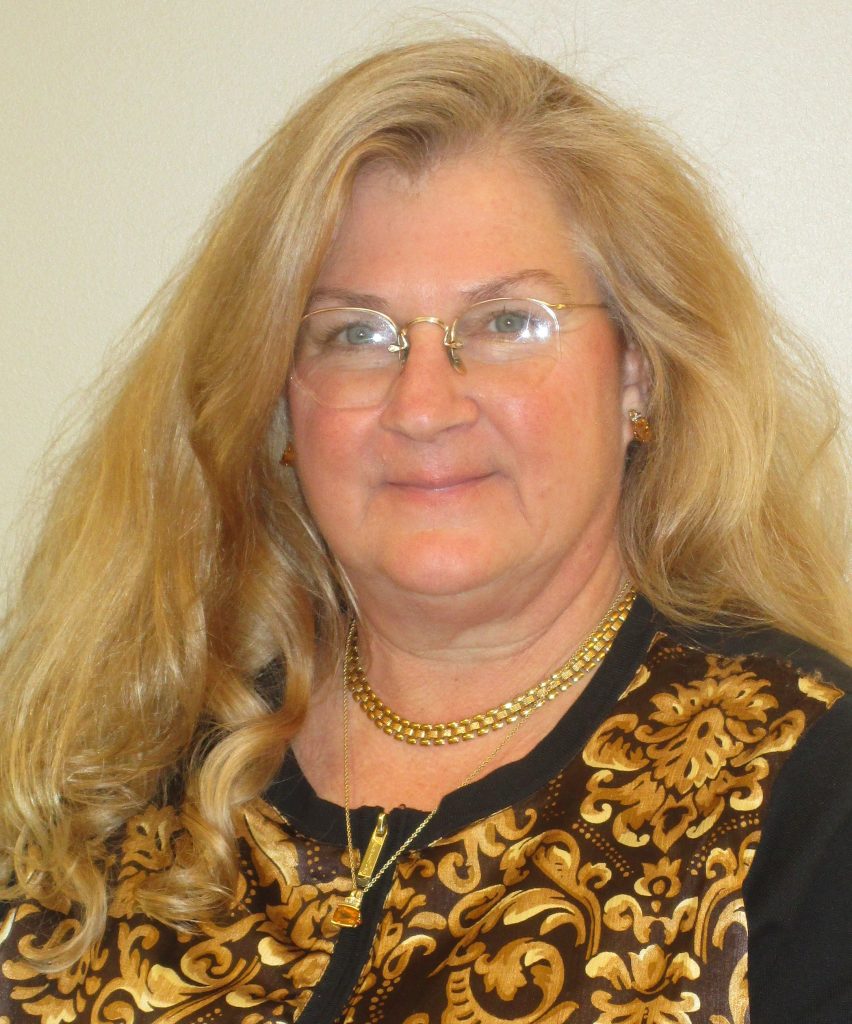
Kim Nettleton, Kansas Hay Market Reporter, Kansas Department of Agriculture
Bio: Kim Nettleton is the hay market reporter for the Kansas Department of Agriculture and has been with the agency for almost 9 years. In this position, Nettleton reports on all hay types on a weekly basis. These reports support those dependent on knowing the price of hay for their agricultural operations, as well as help the agency’s mission of providing an environment that enhances and encourages economic growth through statistical reporting. Her report is published every Tuesday through the USDA’s Agricultural Market Service and The High Plains Journal.
Prior to joining the Department of Agriculture, Nettleton was the environmental and sustainability lead at Mars Chocolate in Topeka. She resides on a farm in North Lyon County with her husband, Todd, and son, Rider, where they have a small cow/calf operation. She enjoys being hiking, fishing and gardening.
Session Title: Kansas Hay Market 2023 Year in Review
Session Description: This session will offer a review of the 2023 hay market and offer an explanation of today’s pricing structure.
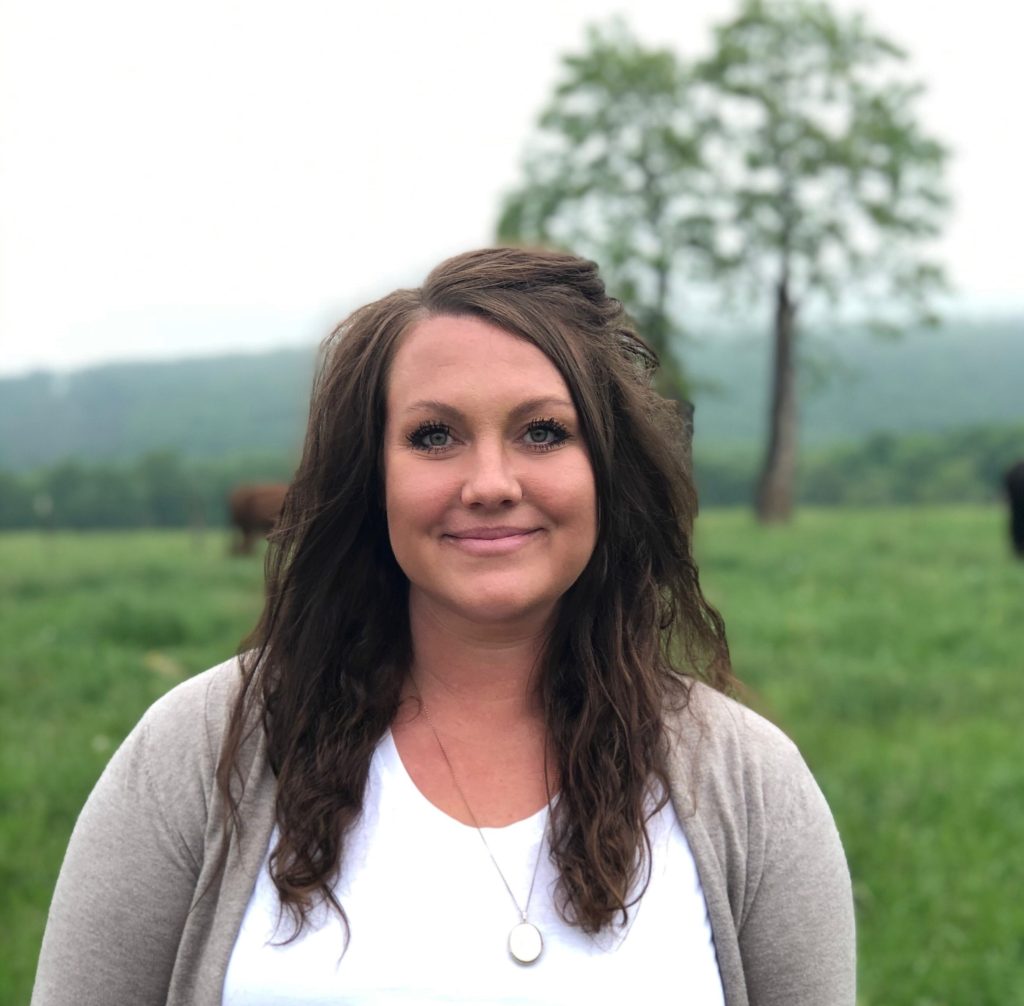
Jessica Williamson, Marketing Manager, Massey Ferguson North America
Bio: Jessica Williamson earned her doctorate from the University of Kentucky in Forage Management, focusing on the plant-animal interaction. Previously she worked in global product management at AGCO, evaluating features and technologies of hay machines. Currently she serves as marketing manager of hay machines for Massey Ferguson North America.
Session Title: Optimizing Forage Quality During Harvest
Session Description: The forage harvesting process has the potential to incur immense quality and yield losses. Learn about several key factors that can help reduce losses during harvest.

Katelyn McCullock, Director, Livestock Marketing Information Center
Bio: Katelyn McCullock has been the director and senior agricultural economist at the Livestock Marketing Information Center since 2018. She covers the market analysis and outlook for cattle, dairy, corn and hay for the LMIC. McCullock is a dynamic presenter, specializing in breaking down economic concepts for producers and allied industries. She has experience presenting internationally and to diverse audiences domestically. She has published in academic journals, LMIC publications, regionally online. McCullock regularly participates on KSU radio and has been featured on Brownfield Ag New and RFD-TV, among others.
Before joining LMIC, she worked in the policy space for the American Farm Bureau Federation and the banking sector through the Farm Credit System. She has a master’s degree in Agricultural Economics from Colorado State University and a bachelor’s degree from the University of Maine.
Katelyn McCullock will be participating in the Industry Panel.
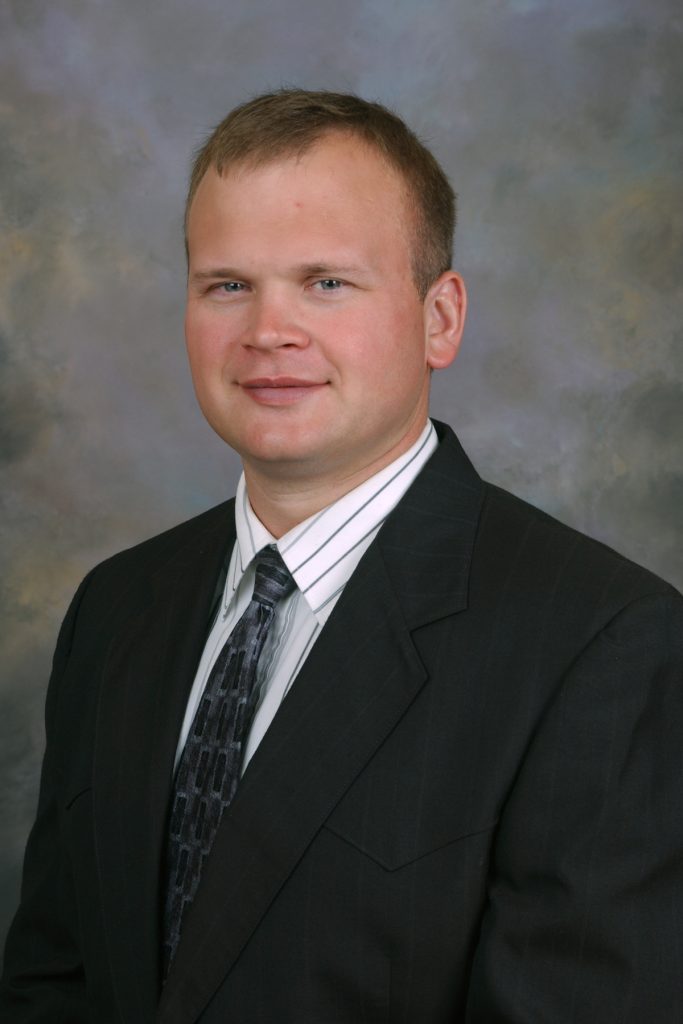
Dr. John Holman, Professor of Agronomy, Kansas State University
Bio: Dr. John Holman is a professor in the Agronomy Department at Kansas State University and serves as the cropping systems and forage agronomist in western Kansas. Dr. Holman earned a bachelor’s degree in Agronomy and Agriculture Business and a master’s degree in Weed Science from Montana State University, and a PhD in Plant Science from the University of Idaho. From 2002 to 2006, he worked as a research and extension scientist for the University of Idaho. He joined Kansas State University in 2006. Dr. Holman’s research program is focused on integrated crop/livestock cropping systems, dryland crop production, cover crops and increasing water use efficiency to improve sustainability and profitability.
Dr. John Holman will be participating in the Industry Panel.
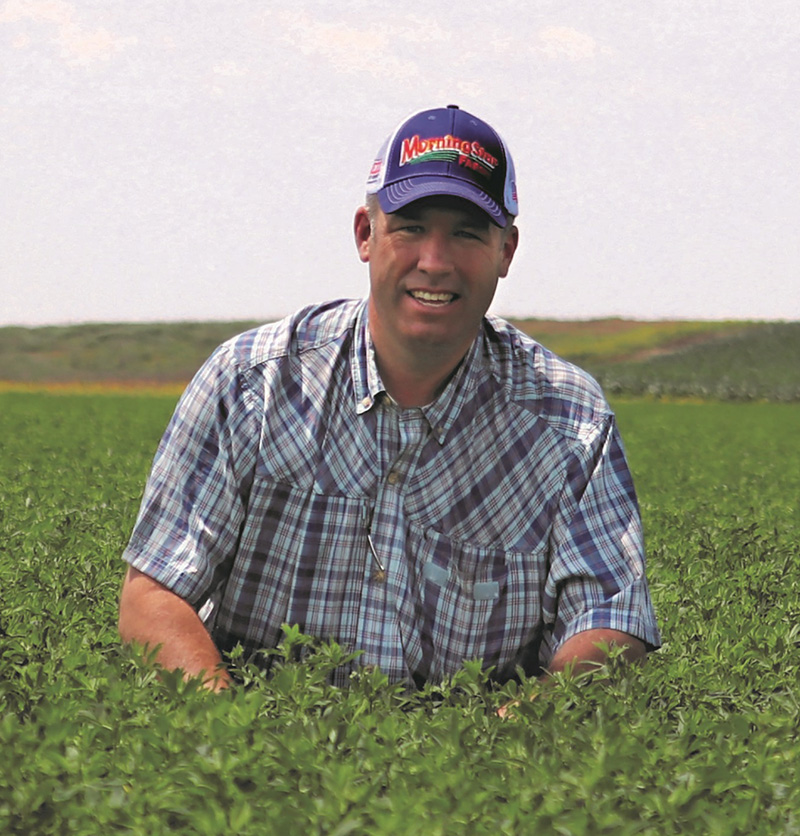
Kevin Melvin, Partner, Morning Star Farms
Bio: Kevin Melvin is a partner at Morning Star Farms in Greensburg, Kansas. A native of northeastern Tennessee, Melvin developed a passion for agriculture at an early age. He specializes in forage production and marketing and has been with Morning Star Farms for over 20 years.
Kevin Melvin will be participating in the Industry Panel.
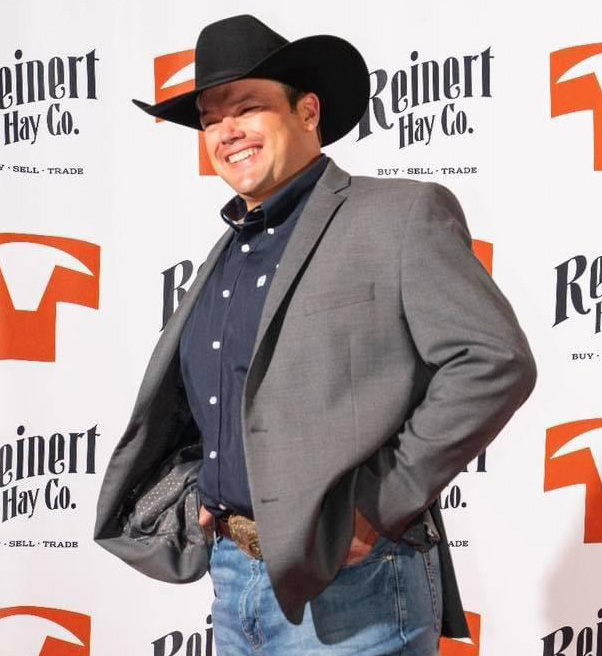
Charlie Bezona, Co-Owner & Trader, Reinert Hay and Commodities
Bio: Charlie Bezona was raised in smalltown Holly, Colorado. In 2008, he moved to Texas to attend West Texas A&M University. In 2009, alongside lifelong friend and business partner, Heath Reinert, Reinert Hay and Commodities began as a small feedstore type operation and has since grown into one of the largest hay suppliers in the United States, focusing on markets in Texas, New Mexico, Oklahoma, Kansas, Colorado and Nebraska. Reinert Hay and Commodities supplies feed ingredients to feedlots, dairies and ranchers, and specializes in baled and ground hay. Bezona operates the business and handles trades and sales at the main office and 800-acre hay facility located in Hereford, Texas.
Charlie Bezona will be participating in the Industry Panel.
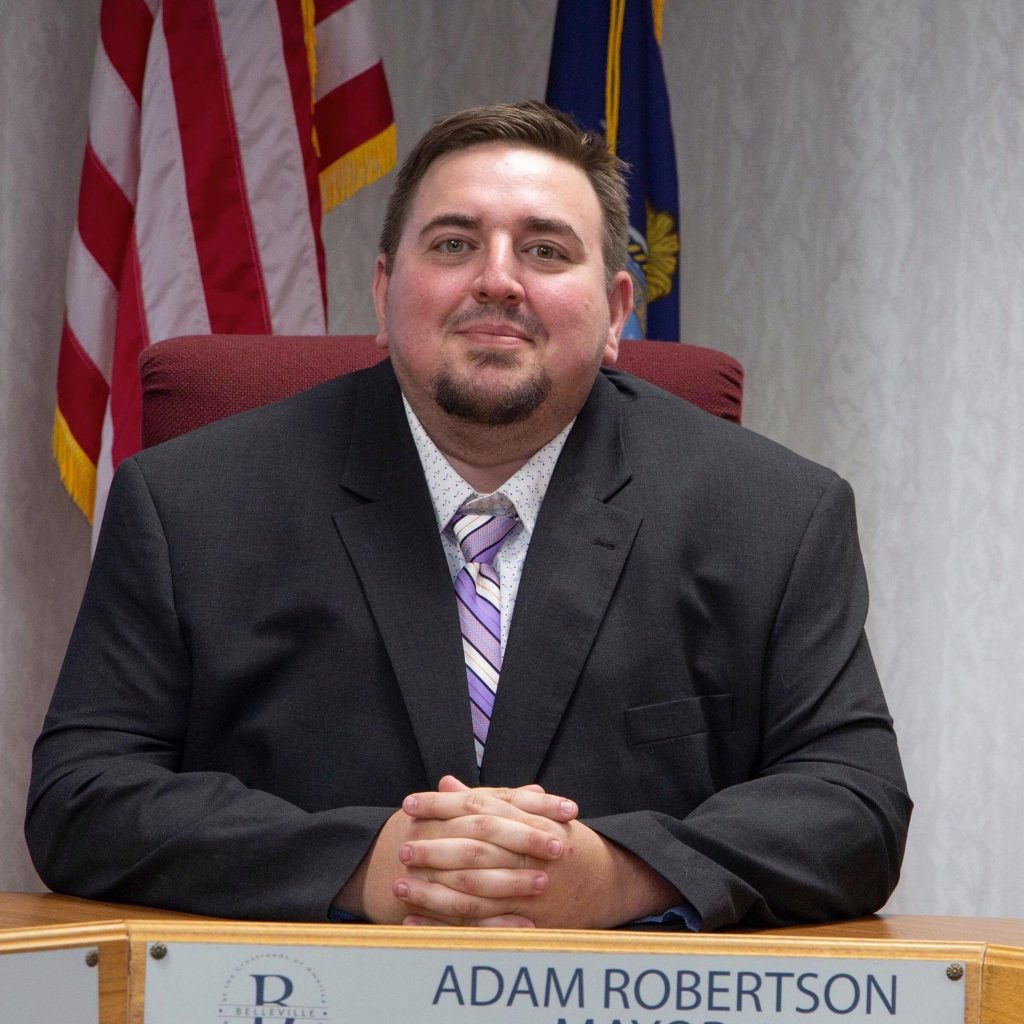
Adam Robertson, Sales and Production Manager, Bestifor Farms
Bio: Born and raised in Belleville, Kansas, Adam Robertson graduated from Kansas State University in 2009 with a degree in marketing. He started working for Bestifor as a production foreman, raking, baling, grinding, loading and delivering hay. In 2011, Robertson took over a logistics role and started working into sales. He is very community oriented and has been the mayor of Belleville for 5 years.
Adam Robertson will be participating in the Industry Panel.
Alfalfa U Content
- Alfalfa U gives producers answers to their questions Alfalfa U topics and speakers during its 10 year run gave producers all the expert knowledge they could ever need, Field Editor Kylene Scott writes.
- High Plains Journal announces HPJ Live: Aug. 6-8, 2025, in Wichita, KansasHigh Plains Journal Live 2025 is set for Aug. 6 to 8 with a multi-day tradeshow with a speaker lineup modeled after the U series.
- Lollato shares best practices for managing high-yielding alfalfa at event Romulo Lollato. (Journal photo by Kylene Scott.)
- OSU forage entomologist discusses alfalfa weevilsKelly Seuhs, Extension specialist for forage entomology at Oklahoma State University, spoke at the recent Alfalfa U event about troublesome insects in alfalfa—specifically the alfalfa weevil.
- Industry panel gives insight on important issues at Alfalfa UKevin Melvin of MorningStar Farms, left, was a member of the Industry Panel, along with Charlie Bezona, center, co-owner and trader, Reinert Hay and Commodities, Hereford, Texas; Katelyn McCullock, director, Livestock Marketing Information Center and Adam Robertson, right, sales and production manager, Bestifor Farms, Belleville, Kansas at Alfalfa U in Dodge City, Kansas, Feb. 27. John Holman, agronomy professor at Kansas State University, moderated the panel. (Journal photo by Kylene Scott.)
- Alfalfa U keynote speaker gives 2024 weather outlookAlfalfa U took place Feb. 27 in Dodge City, Kansas, with more than 130 attendees filling the meeting room. Meteorologist Jeff Hutton served as the closing keynote speaker and gave his weather predictions for 2024.
- Alfalfa and hay receives top billing at U eventHey-hay-hey! Alfalfa U attendees receive updates on production and markets during Feb. 27 event in Dodge City, Kansas, Dave Bergmeier writes.
- Alfalfa U showcases important topics, people during eventsTopics ranging from production methods, pest control, weeds and much more have filled nearly two dozen Alfalfa U events since its inception.
- Alfalfa U planned for Feb. 27 in Dodge CityHigh Plains Journal’s Alfalfa U event is set for Feb. 27 in Dodge City, Kansas, at the Boot Hill Casino & Resort Conference Center.
- Crop insurance can be added to checklist for alfalfa growersGlenda Blindert, a crop insurance agent, said growers need to evaluate their operation and look to see if they can cover the costs of any crop they plant.
- Leaf loss bears watchingLeaf loss in alfalfa crops is one topic that is sure to get the attention of experts.
- Nutrient management crucial in alfalfa cropExperts on alfalfa production recognize the growing season challenges many growers face this year and recommend producers continue to use sound practices that yield results.
- Start your alfalfa off right this yearSummer is just around the corner and for many it is synonymous with the sweet smell of alfalfa and the sweaty business of hauling hay. Mike Rankin, managing editor at Hay and Forage Grower, spoke recently about preparing for this year’s crop and why he believes it should be incorporated more often in livestock rations.
- Alfalfa weevils remain a top targetAlfalfa and hay producers are encouraged to be proactive when it comes to pests and this year they really need to be paying attention for one weevil in particular, according to one expert.
- It’s never too early to start with alfalfa prep workAlfalfa and hay producers recognize many of the challenges of the past year and as they plan ahead for 2023 it can be a good idea to look at possible strategies.
- New ‘AA’ alfalfa varieties provide boost for growersA strong start to your alfalfa stand is important. The soil environment that alfalfa is seeded into can mean success or failure for the stand. Management practices like seedbed preparation and soil fertility, can influence stand establishment.
- Long-term mindset pays dividends for alfalfa growersSage advice for alfalfa growers facing water limitations—whether drought or restrictions in irrigated fields—is to plan long term.
- High-risk, high-reward alfalfa requires gambler’s nervesIf agriculture is a casino, alfalfa is the high-stakes table: high risk but potentially high reward, but only if a lot of things go right.
- Alfalfa U Farmer Panel in Nevada brings insight from the WestAlthough Nevada is often associated with the bright lights and slot machines of Sin City, alfalfa is the leading crop in the state and it is sold to many surrounding states. An Alfalfa U event was held Feb. 24 in Reno, Nevada, with growers from across the western United States. The event kicked off with the farmer panel, featuring four diverse growers.
- Reduced lignin alfalfa: Quantity and quality considerationsAlex Rocateli, Oklahoma State University associate professor and Extension specialist for forage systems, said when he finally got to Oklahoma, he found his experience with forage sorghum and switchgrass wasn’t something producers were looking for. Instead, they were wanting winter grass, wheat and alfalfa information. Rocateli spoke at the Feb. 22 Alfalfa U event in Dodge City, Kansas.
- Alfalfa U speaker explains practices to reduce pestsDan Putnam, Extension agronomist and forage specialist at the University of California-Davis, spoke at a recent Alfalfa U event in Reno, Nevada, on the key integrated pest management strategies growers can employ to reduce pests in their fields, lower inputs, increase profits and set the stage for sustainable, healthy crops in the future.
- Alfalfa producers need to stay ahead of troublesome weedsGrowers have watched herbicide-resistant weeds crop up in corn, soybeans and sorghum fields and they are not alone.
- Region sees different challenges for panelists at Dodge City Alfalfa UThe four farmer panelists at Alfalfa U in Dodge City, Feb. 22 come from varying regions across Kansas and the Texas Panhandle, and each face challenges and triumphs when it comes to growing alfalfa.
- HPJ’s Alfalfa U farmer panel delves into varieties and irrigationHigh Plains Journal’s Virtual Alfalfa U concluded with a fourth session—titled Tailgate Talk—on March 11, which included the ever-popular farmer panel. The panelists included: Andrew Eddie of RNH Farms in Moses Lake, Washington; Darrin Eck of Eck Ag Services in Kingman, Kansas; and David DeHaan of Revolution Soil and Seed in Fort Lupton, Colorado.
- Koontz: Feed grain prices, weather will drive alfalfa markets in 2021With high corn and soybean meal prices, fluctuating dairy prices, and long-term drought in the West, alfalfa farmers have a window of opportunity for higher prices for their hay in 2021.
- Larsen talks economic returns on steam technology in alfalfaUtah State University Associate Professor Ryan Larsen broke down the economic returns of using steam technology to produce quality alfalfa during the virtual Alfalfa U, March 4.
- Growers need to stay on top of pestsAlfalfa is a shining star, but because it is considered a cool weather crop growers need to be vigilant in tracking pests.
- To process or not? That is the question with alfalfaMike Brouk, Kansas State University professor and state dairy Extension specialist, studies the effect of pre-cutting round hay bales during baling on forage quality and processing time.
